Peugeot 3008 vs Toyota Corolla - Differences and prices compared
Compare performance (325 HP vs 178 HP), boot space and price (35100 £ vs 28600 £) at a glance. Find out which car is the better choice for you – Peugeot 3008 or Toyota Corolla?
Costs and Efficiency:
Price and efficiency are key factors when choosing a car – and this is often where the real differences emerge.
Toyota Corolla has a noticeable advantage in terms of price – it starts at 28600 £, while the Peugeot 3008 costs 35100 £. That’s a price difference of around 6565 £.
Fuel consumption also shows a difference: Peugeot 3008 manages with 2.40 L and is therefore convincingly more efficient than the Toyota Corolla with 4.40 L. The difference is about 2 L per 100 km.
Engine and Performance:
Power, torque and acceleration are the classic benchmarks for car enthusiasts – and here, some clear differences start to show.
When it comes to engine power, the Peugeot 3008 has a decisively edge – offering 325 HP compared to 178 HP. That’s roughly 147 HP more horsepower.
In acceleration from 0 to 100 km/h, the Peugeot 3008 is clearly perceptible quicker – completing the sprint in 6 s, while the Toyota Corolla takes 7.50 s. That’s about 1.50 s faster.
In terms of top speed, the Peugeot 3008 performs somewhat better – reaching 220 km/h, while the Toyota Corolla tops out at 180 km/h. The difference is around 40 km/h.
Space and Everyday Use:
Beyond pure performance, interior space and usability matter most in daily life. This is where you see which car is more practical and versatile.
Both vehicles offer seating for 5 people.
In curb weight, Toyota Corolla is slightly lighter – 1420 kg compared to 1648 kg. The difference is around 228 kg.
In terms of boot space, the Peugeot 3008 offers clearly perceptible more room – 520 L compared to 361 L. That’s a difference of about 159 L.
In maximum load capacity, the Peugeot 3008 performs clearly perceptible better – up to 1480 L, which is about 428 L more than the Toyota Corolla.
When it comes to payload, Peugeot 3008 barely noticeable takes the win – 467 kg compared to 450 kg. That’s a difference of about 17 kg.
Who comes out on top?
Overall, the Peugeot 3008 shows itself to be leaves the rival little chance and secures the title of DriveDuel Champion.
It convinces with the more balanced overall package and proves to be the more versatile choice for everyday use.
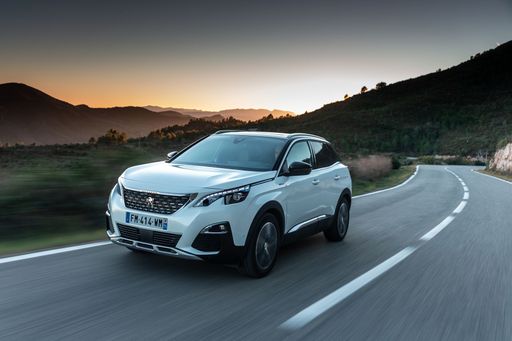
Peugeot 3008
Costs and Consumption
View detailed analysis
Engine and Performance
View detailed analysis
Dimensions and Body
View detailed analysis
Peugeot 3008
The Peugeot 3008 blends bold French styling with a surprisingly grown-up interior that makes even dull commutes feel a little bit special. Practical enough for family life yet lively to drive, it’s a clever all‑rounder that stands out from the crossover crowd without shouting for attention.
details
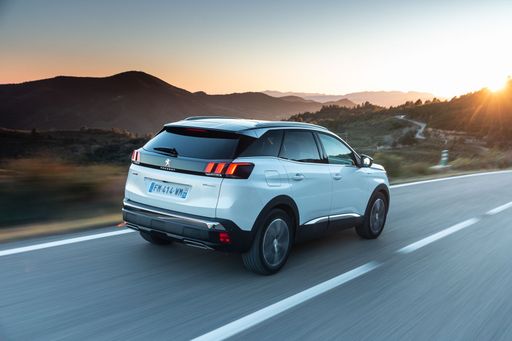

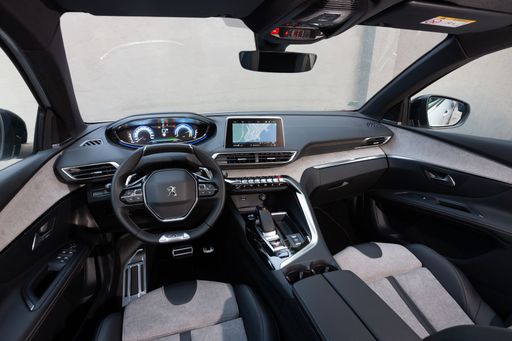
Toyota Corolla
The Toyota Corolla remains the steady, no-nonsense compact that puts reliability and low running costs at the top of your shopping list, with a comfortable, well-built interior that won't embarrass you at the supermarket. It won't set your pulse racing, but it's an honest, easy-to-live-with car that makes smart sense for buyers who want dependability and sensible value with a dash of modern tech.
details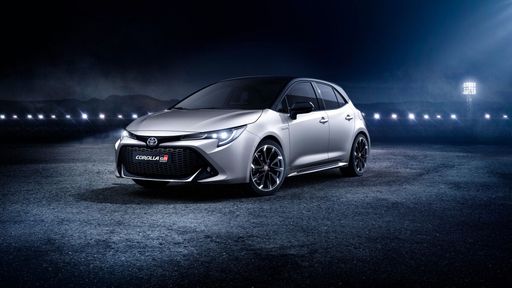
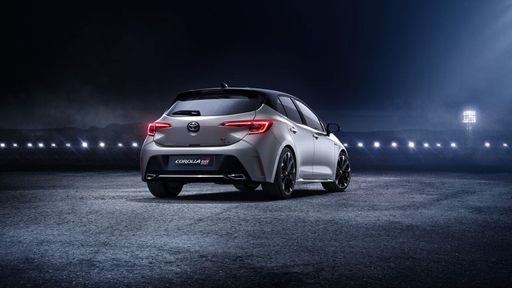
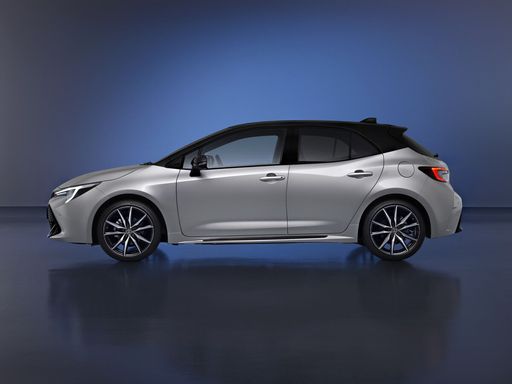
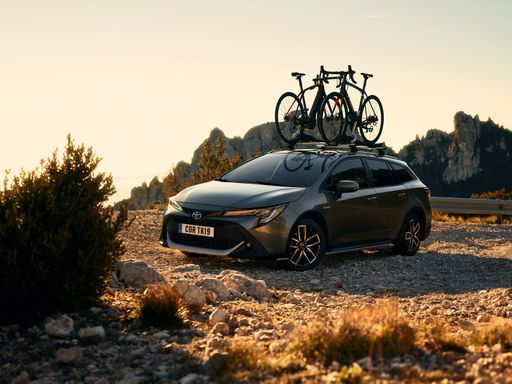
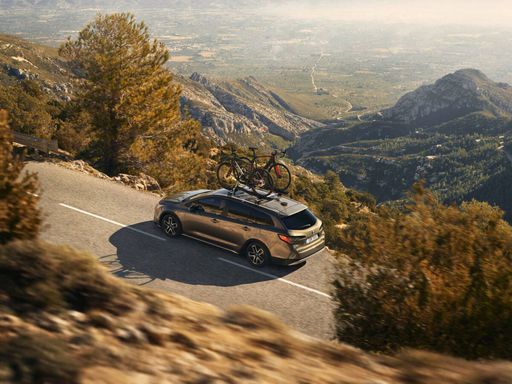

|

|
|
|
|
Costs and Consumption |
|
|---|---|
|
Price
35100 - 52000 £
|
Price
28600 - 34900 £
|
|
Consumption L/100km
2.4 - 5.4 L
|
Consumption L/100km
4.40 L
|
|
Consumption kWh/100km
16.9 - 17.6 kWh
|
Consumption kWh/100km
-
|
|
Electric Range
81 - 698 km
|
Electric Range
-
|
|
Battery Capacity
0.4 - 96.9 kWh
|
Battery Capacity
-
|
|
co2
0 - 121 g/km
|
co2
100 g/km
|
|
Fuel tank capacity
55 L
|
Fuel tank capacity
43 L
|
Dimensions and Body |
|
|---|---|
|
Body Type
SUV
|
Body Type
Hatchback
|
|
Seats
5
|
Seats
5
|
|
Doors
5
|
Doors
5
|
|
Curb weight
1648 - 2266 kg
|
Curb weight
1420 - 1460 kg
|
|
Trunk capacity
470 - 520 L
|
Trunk capacity
313 - 361 L
|
|
Length
4542 mm
|
Length
4370 mm
|
|
Width
1895 mm
|
Width
1790 mm
|
|
Height
1641 mm
|
Height
1435 mm
|
|
Max trunk capacity
1430 - 1480 L
|
Max trunk capacity
1004 - 1052 L
|
|
Payload
432 - 467 kg
|
Payload
400 - 450 kg
|
Engine and Performance |
|
|---|---|
|
Engine Type
Electric, Petrol MHEV, Plugin Hybrid
|
Engine Type
Full Hybrid
|
|
Transmission
Automatic
|
Transmission
Automatic
|
|
Transmission Detail
Reduction Gearbox, Dual-Clutch Automatic
|
Transmission Detail
CVT
|
|
Drive Type
Front-Wheel Drive, All-Wheel Drive
|
Drive Type
Front-Wheel Drive
|
|
Power HP
145 - 325 HP
|
Power HP
140 - 178 HP
|
|
Acceleration 0-100km/h
6 - 10.2 s
|
Acceleration 0-100km/h
7.5 - 9.2 s
|
|
Max Speed
170 - 220 km/h
|
Max Speed
180 km/h
|
|
Torque
230 - 511 Nm
|
Torque
-
|
|
Number of Cylinders
3 - 4
|
Number of Cylinders
4
|
|
Power kW
107 - 239 kW
|
Power kW
103 - 131 kW
|
|
Engine capacity
1199 - 1598 cm3
|
Engine capacity
1798 - 1987 cm3
|
General |
|
|---|---|
|
Model Year
2024 - 2025
|
Model Year
2025
|
|
CO2 Efficiency Class
A, D, B
|
CO2 Efficiency Class
C
|
|
Brand
Peugeot
|
Brand
Toyota
|
What drive types are available for the Peugeot 3008?
The Peugeot 3008 is offered with Front-Wheel Drive or All-Wheel Drive.
The prices and data displayed are estimates based on German list prices and may vary by country. This information is not legally binding.
